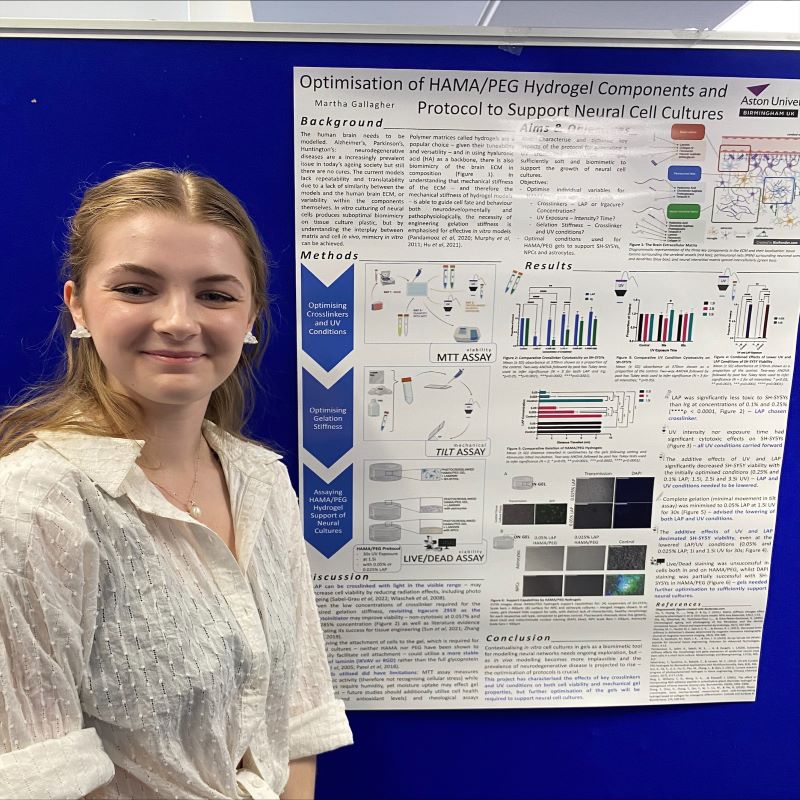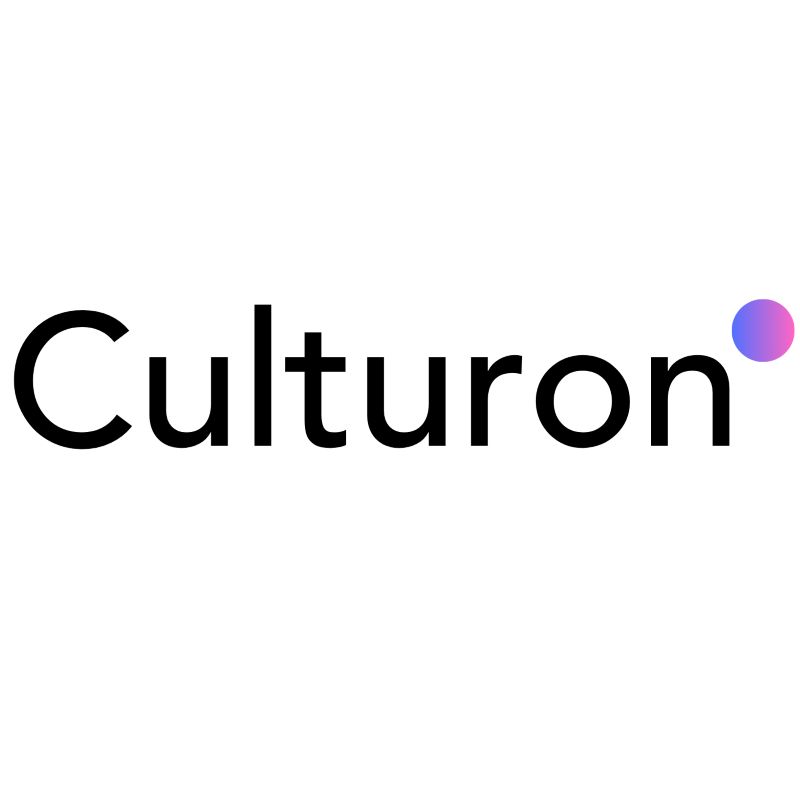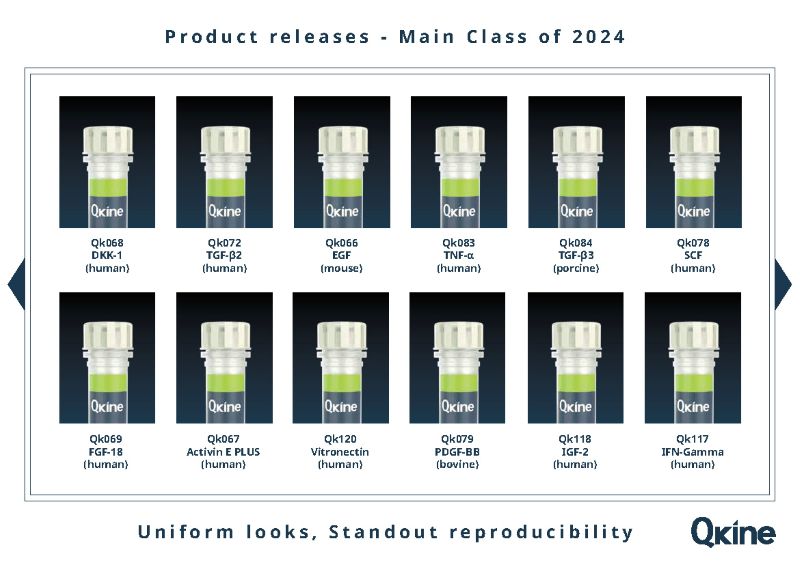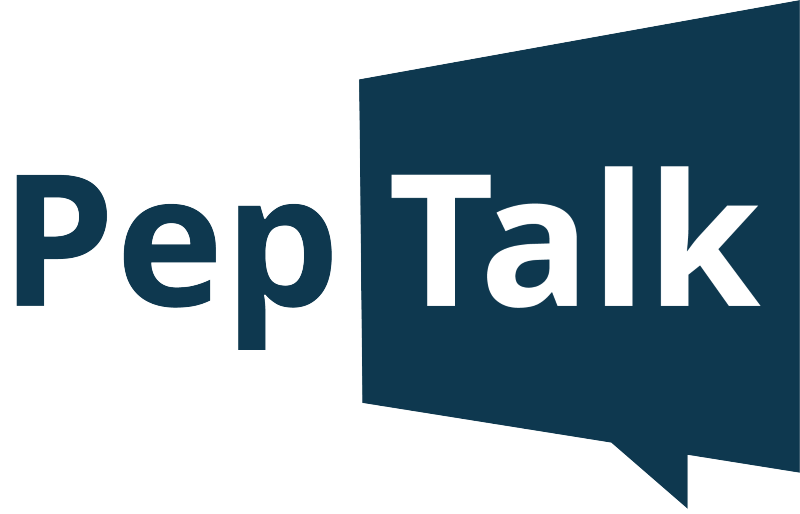Designing biomimetic neural materials for scalable 3D cell culture
In conjunction with the LifETIME CDT program, Qkine has sponsored a PhD studentship based at Aston University, Birmingham, UK. Martha Gallagher started her PhD in Dr Eric Hill’s lab in October 2022 after completing her MSc at the University this summer.
Developing therapies and prevention strategies to tackle neurological diseases such as Alzheimer’s Disease, requires an understanding of the brain cells that are affected. Whilst extensive informative research has been conducted over the past decades using animal models, therapeutic advances often fall at the final hurdle of clinical trials, never reaching the patient. There remains a significant gap in knowledge surrounding the mechanisms underlying brain cell dysfunction and capturing the complexity of the human brain in a translatable and reproducible model could help to address that.
Martha’s project will develop a 3D biomaterial scaffold that will display multiple neurodevelopmental signalling factors to mimic corticogenesis with induced pluripotent stem cell-derived neurons and glia.
The lifETIME CDT is a partnership between academia (the University of Glasgow, the University of Birmingham, Aston University, and CÚRAM – Science Foundation Ireland) and industry. They train innovation leaders for the non-animal technology and regenerative medicine sectors, with multidisciplinary, high-value skills in the design, creation, and application of new knowledge to accelerate therapeutic discovery.
Martha commented “I was drawn to the lifETIME CDT because it actively provides the resources and support that postgraduate researchers need and may not always get: an established community of likeminded people with a clear vision, from both industry and academia, along with a whole portfolio of interdisciplinary training. My project, in particular, felt like a perfect fit having done an undergraduate degree in neuroscience and a master’s degree in stem cells and regenerative medicine. Being able to cumulatively apply my taught knowledge to creatively engineer an iPSC-derived neural tissue model has already been so rewarding. I want to thank Qkine for their support, and I look forward to the next 4 years!”
Qkine offer a large portfolio of growth factors and cytokines to improve reproducibility for neural stem cell cultures, visit our neural stem cell page for further information. Follow Qkine on LinkedIn for updates on Martha’s project.






